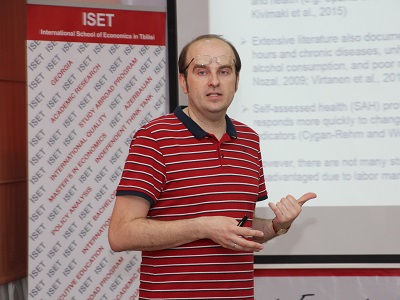Memorandum of Understanding between ISET and CENN
- Details

On the 5th of June 2019, ISET and the Caucasus Environmental NGO Network (CENN) signed a memorandum of understanding (MoU). Under the scope of this MoU, new courses will be offered as part of ISET’s Bachelors and Master’s Programs; in the former, a course in environmental economics and circular economy will be offered as an elective, while for the latter, a course in environmental economics by Prof. Hans Wiesmeth will be available. These courses will equip students with the needed skills and knowledge to analyze environmental challenges from an economic perspective and offer policy solutions.
The course at the BA level will focus on the economic theory behind environmental economics, as well as show the student’s capabilities for introducing circularity in economic activities. It will also show the students how economic theory can be used for environmental stewardship. Furthermore, it will help them understand the entrepreneurial opportunities that can arise within the different value chains of a circular economy. This is referred to as environmental entrepreneurship in modern literature.
Is overworking bad for your health? Kyiv School of Economics researcher visits ISET
- Details

The debate over working hours has become a frequent topic of discussion in recent years, especially as increasing numbers of modern industries (especially workplaces such as technology startups) find the traditional nine-to-five standard incompatible or irrelevant. Research and experiments – most notably those conducted in Scandinavia – have also contributed to the discussion, especially with regards to the idea that overworking can be unhealthy or dangerous.
However, the experiments and research have universally been concentrated on the developed world, with the circumstances of many countries remaining unexamined. To this end, Maksym Obrizan of the Kyiv School of Economics has been examining the issue in a wider context on his own.










